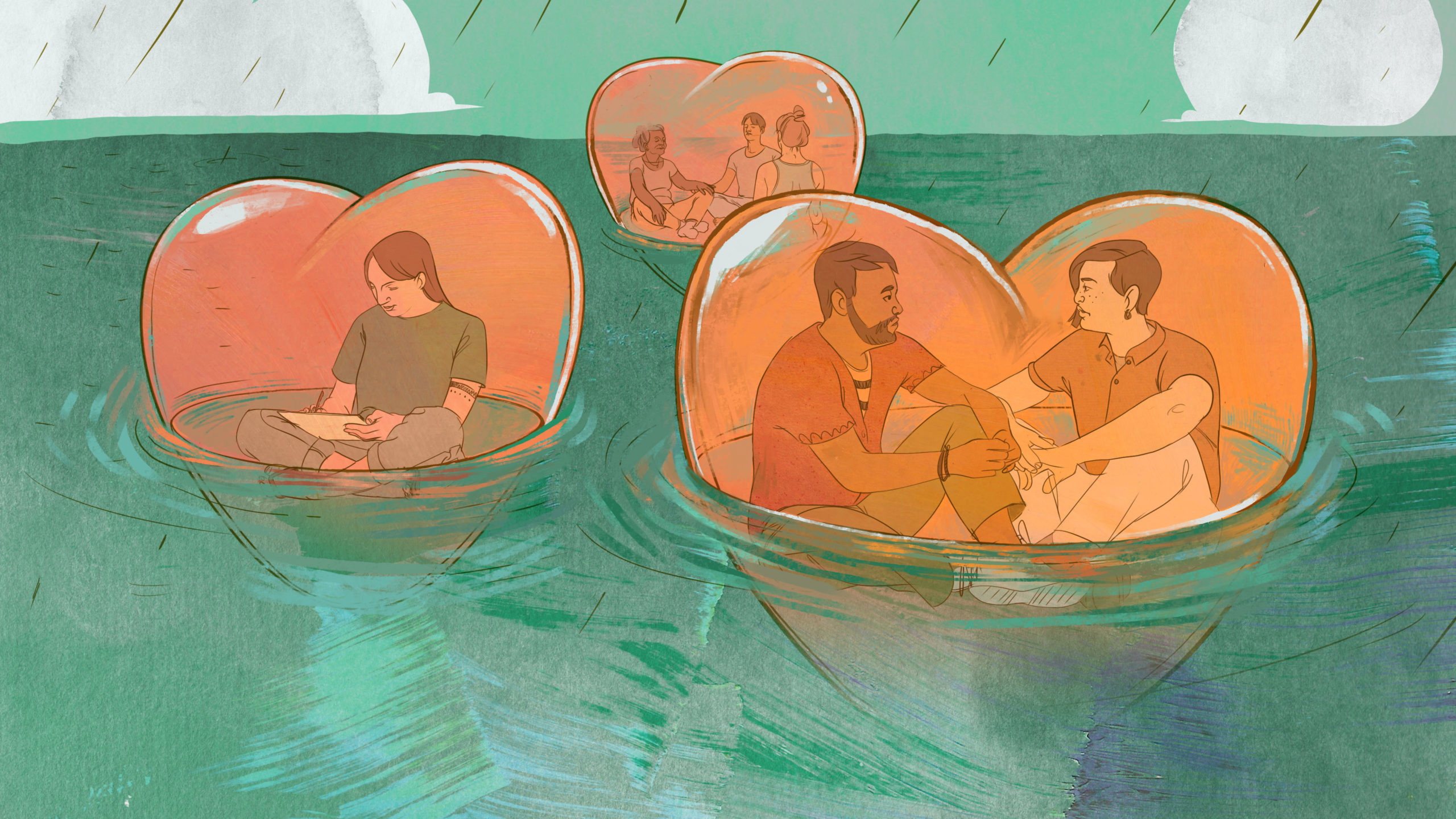Self-care and wellbeing

© Marc Lewis Ramage
The listed guides aim to raise awareness about psycho-social challenges and means of self-care in the field of human rights work and activism. How can activism be sustained without getting bitter or burning out? There are already a couple of overview pages which can be accessed through the links below. The booklet “What’s the point of revolution if we can’t dance” is a collection of experiences and reflections related to well-being and activism.
Front Line Defenders: Resources for Wellbeing and Stress Management
Organization: Front Line Defenders
This page explains what stress can mean for different persons and when it is important to seek help. It further shares a collection of ideas and practices from human rights defenders around the globe to deal with stressful situations:
Resources for Wellbeing & Stress Manengement
Human Rights Defenders Hub University of York: From a “Culture of Unwellness” to Sustainable Advocacy: Mental Health and Human Rights
Organization: Human Rights Defenders Hub/ University of York
The policy brief from 2019 found: “Human rights advocates are exposed to significant stressors and harms of myriad forms, and suffer elevated levels of post-traumatic stress disorder, depression, and burnout. Yet research into mental health and human rights is nascent. This policy brief explores the findings from a first of its kind global study which mapped how human rights organisations are responding to the mental health and wellbeing needs of advocates.”
Human Rights Defenders Hub University of York: Wellbeing, Risk, and Human Rights Practice
Organization: Human Rights Defenders Hub/ University of York
In their policy brief from 2017 the Human Rights Defenders Hub outlines the findings of a study about mental and emotional wellbeing of human rights defenders and their communities. It says, “cultures of human rights practice tend to emphasise self-sacrifice, heroism, and martyrdom. These norms inhibit defenders from expressing their anxieties and seeking help.” The brief offers a few recommendations on how to transform this culture, its norms, expectations, and stigma.
Download (PDF): Human Rights Defenders Hub, Policy Brief 1, Wellbeing, Risk, and Human Rights Practice, University of York, Januaray 2017
Medical Action Group: Self-Care for People at Risk
Organization: Medical Action Group (MAG)
With a short educational video MAG addresses front liners, human rights defenders and service providers. It explains how stress can affect mind and body and what can be done about it.
New Tactics in Human Rights: Self-Care for Activists: Sustain Your Most Valuable Resources
Organization: New Tactics for Human Rights
Human rights work is a powerful and fulfilling vocation. And it is equally hugely challenging for human rights practitioners. These practitioners are often exposed to distressing situations directly and indirectly. From those working directly with survivors of human rights abuses to those working indirectly on human rights abuse issues, the need for taking care of one’s self is extremely important. We all know that the work is precious and valuable, and yes, we need to be strong, healthy and balanced to do it well — but we take care of ourselves first and foremost because we are valuable.
This page offers links and resources which can guide through the different aspects of self-care as human rights workers:
Self-Care for Activists: Sustain Your Most Valuable Resources
OMCT SOS-Torture Network: Resilience Strategies for a Sustainable Human Rights Movement
Organization: OMCT SOS-Torture Network
Defending human rights often expose activists to a range of risks which can result in psychological suffering. The World Organisation against Torture (OMCT) published a guidebook that includes an analysis of challenges to the wellbeing of human rights defenders as well as best practices for psychosocial support.
The guidebook facilitates understanding of different types of stress and trauma in human rights work. It further presents different approaches from around the globe on how to establish psychosocial support on an organizational level.
Download (PDF): Resilience Strategies for a Sustainable Human Rights Movement
Urgent Action Fund A&P: What’s the Point in Revolution if We Can’t Dance?
Organization: Urgent Action Fund A&P
In their booklet, Jane Barry and Jelena Đordević refer to stories from 100 women from 45 countries, the challenges they meet as activists and how they cope. Issues that are being discussed are how women human rights defenders can sustain their work and their well-being at the same time. The booklet breaks with taboos like talking about how activists feel, about grief, worries, guilt, expectations and their perceived private lives. It also tackles the issues of the often exhausting task of fundraising and complying with funders’ expectations and requirements. The reflections in the booklet discuss strategies to be self-empathetic and to keep going in a field in which work is noble but can be overwhelming in its amount and intensity of human suffering. It is a sensitive, genuine and empowering approach to issues that are seldom discussed, often neglected but worth to reflect on.
Download (PDF): Jane Barry and Jelena Đordević, What’s the Point in Revolution if We Can’t Dance?, Urgent Action Fund for Women’s Human Rights, 2007
